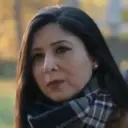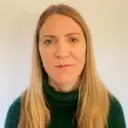Famine confirmed in Gaza City, as UN chief calls it 'failure of humanity'published at 17:54 BST 22 August
 Image source, Reuters
Image source, ReutersFamine has been confirmed in Gaza City and the surrounding area for the first time, according to a report by the UN-backed food security body Integrated Food Security Phase Classifications (IPC).
Half a million people in the territory are facing "starvation, destitution and death," reports the IPC, which expects the crisis to get worse in the coming weeks.
Gazan parents say their children are wasting away, teachers report students are light headed - and everyone is talking about soaring food prices.
UN Secretary General António Guterres calls it "a failure of humanity".
The IPC, along with many international aid agencies, describes the famine as a "man-made" catastrophe. Some say it has been deliberately engineered by the Israeli military.
Israel strongly denies these allegations, saying there is no famine in Gaza and that it has significantly increased aid deliveries.
The country also says the IPC used unreliable data controlled by Hamas, and accuses the body of changing its methodology - something both the IPC and food security experts reject as false.
Gaza City is now facing a renewed Israeli offensive, with troops operating on its outskirts as part of a plan to take control of the city.
There have been peace talks between Israel and Hamas, but key differences remain. While Hamas has agreed to a proposal by mediators for a 60-day ceasefire in exchange for releasing half of the remaining hostages, Israeli Prime Minister Benjamin Netanyahu has apparently rejected this, saying he has instructed negotiations to begin for the release of all remaining hostages.
We're ending our live coverage here. For now, you can read a selection of some more of our reports below:















